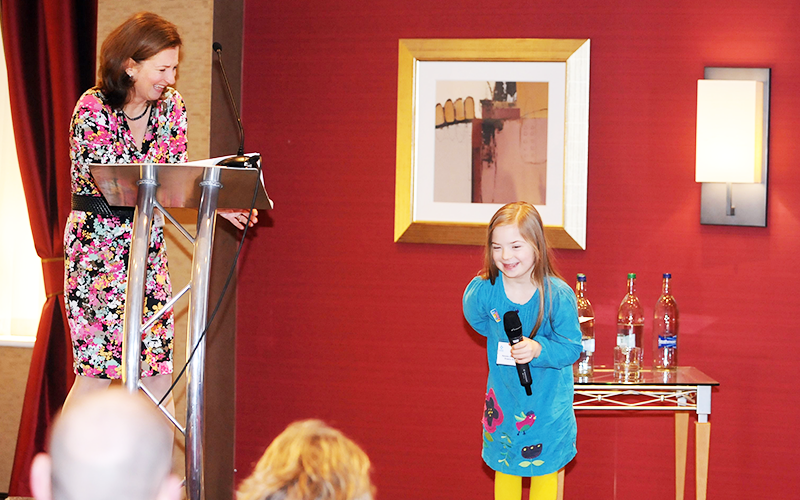Everything has a crack in it, it’s what lets the light in.
The reaction has quite literally overwhelmed me.
A World Without Down’s? is a beautiful film, which not only tells Sally’s personal story of parenting three boys, one of whom, Olly, has Down’s syndrome but also explores society’s attitudes towards disability as well as the ethical implications of the way in which non-invasive prenatal testing (NIPT) is being delivered.
The film was beautifully put together, combining humour, heart and fact.
It weaves a vast array of experiences together with interviews from scientists, ethicists, champions with Down’s syndrome, parents and those who have experienced or offer support following a termination.
It also provides a disturbing look into a possible future without Down’s syndrome when Sally visits Iceland – where they have experienced 100% termination rate for babies with Down’s syndrome in the last five years.
Is this where we want to be heading as a society, with other genetic conditions following suit?
Is Down’s syndrome just the canary in the mine?
It was always going to be an emotional and emotive subject, and in discussing its themes the more vocal of opinions reflected perhaps viewers’ personal experiences and thoughts before they had watched.
These ranged from cries for support, guilt, regret, certainty, a need to be heard, requests to work together, frustrations at lack of information, fear of choice being removed and relief that at last someone was putting a spotlight on our minority group.
Every media outlet covered the story, from every possible angle.
Many tears were shed. It was a cathartic week for many.
Having watched a World Without Down’s? several times now, I have gained something new with each viewing. The piece works on so many levels and Sally succeeds in maintaining balance whilst bringing emotion to a topic that, sadly, has often had that crucial human dimension removed as it is debated like so much hot air, with unique individuals reduced to a list of characteristics in a medical book.
A feminist, Sally is not against screening, nor terminations, ‘there are no bad guys in the film’ she told me.
But this high-profile Mum saw the introduction of NIPT and public debate around late term abortions as a pivotal moment in disability history in which to assess and redress the balance of information given to women during pregnancy, for only with the full picture can prospective parents make fully informed choices that are right for them.
Her film pleads for greater public debate…
…for stereotypes to be challenged, for the medical profession to listen to families’ narratives and for those with the condition to also be consulted.
As one GP Steve Laitner wrote to me, “Choice that is not informed, but moulded by societal discriminatory pressure is not really choice at all.”
And in just one hour of television Sally and film maker Clare Richards have certainly succeeded in starting those important conversations.
One parent wrote:
“I think what the programme portrayed beautifully was that science and the test are simply tools which we can use.
Our ethics will design how we use them and our humanity will choose how we help each other.”
And yes, the film has cracks in it, it is a start point and could have been easily extended into a comprehensive series, but just as Sally quotes Leonard Cohen towards the end, we all have flaws.
It is the cracks, dear reader, that lets the light into our lives. And that is very illuminating indeed.
